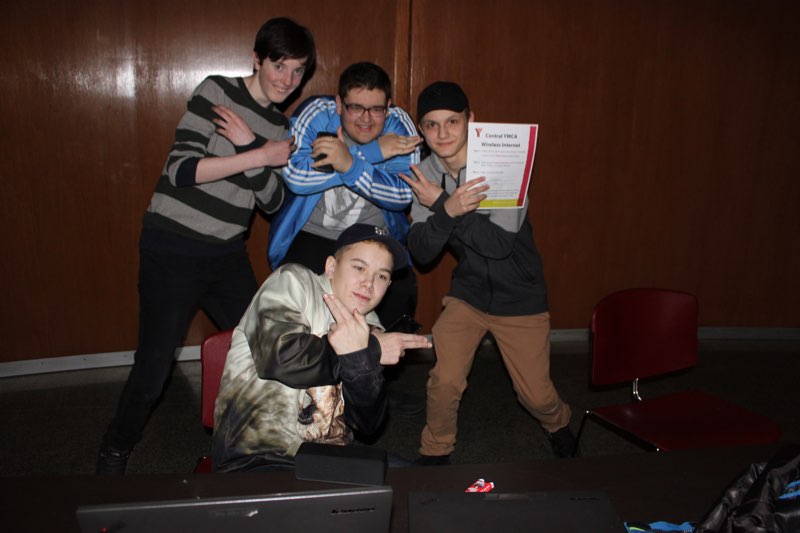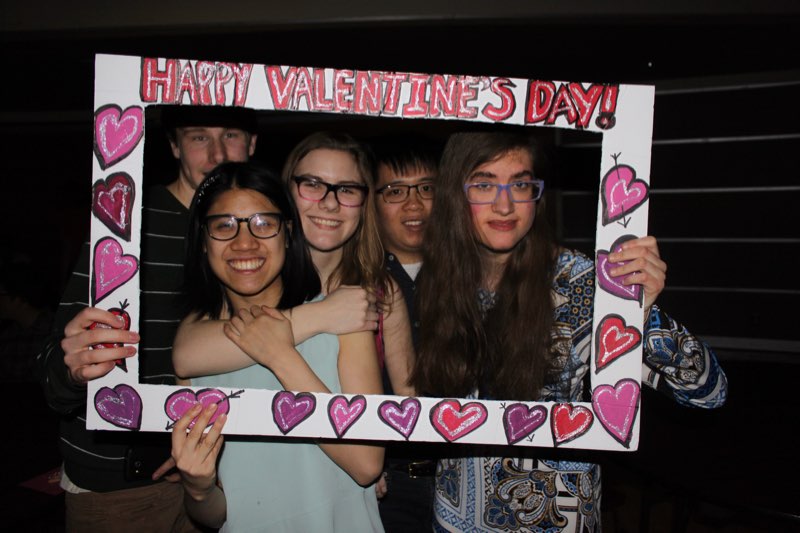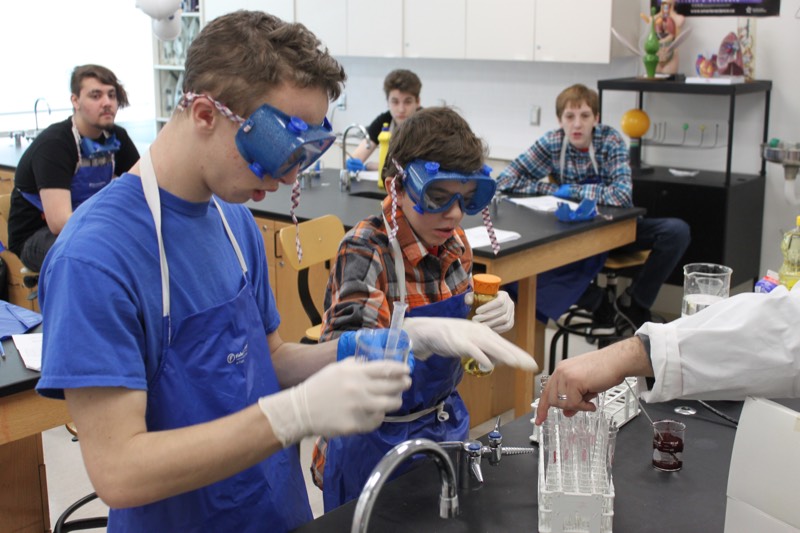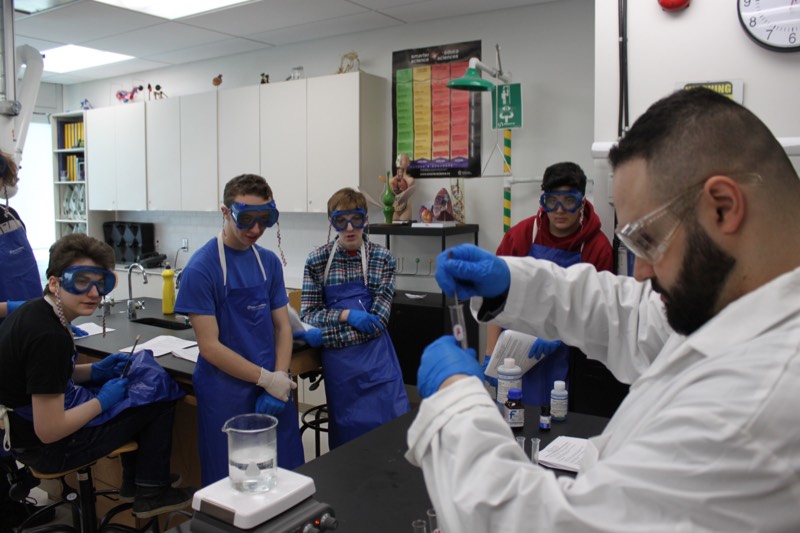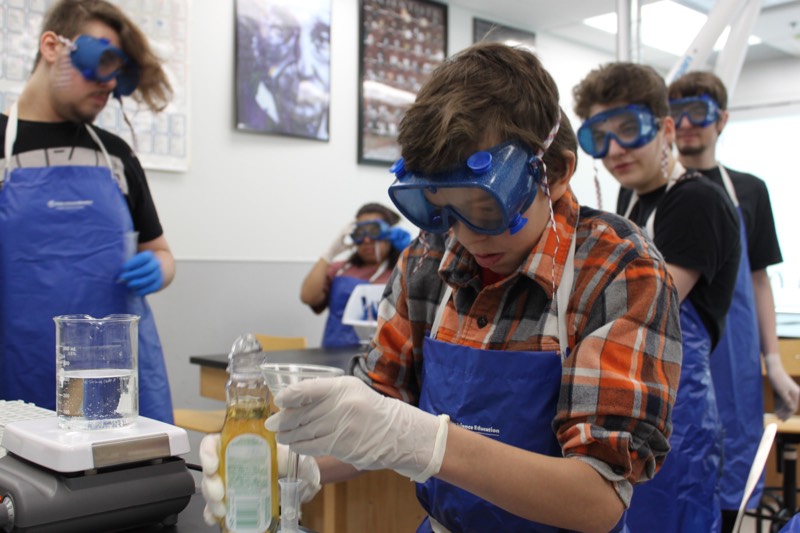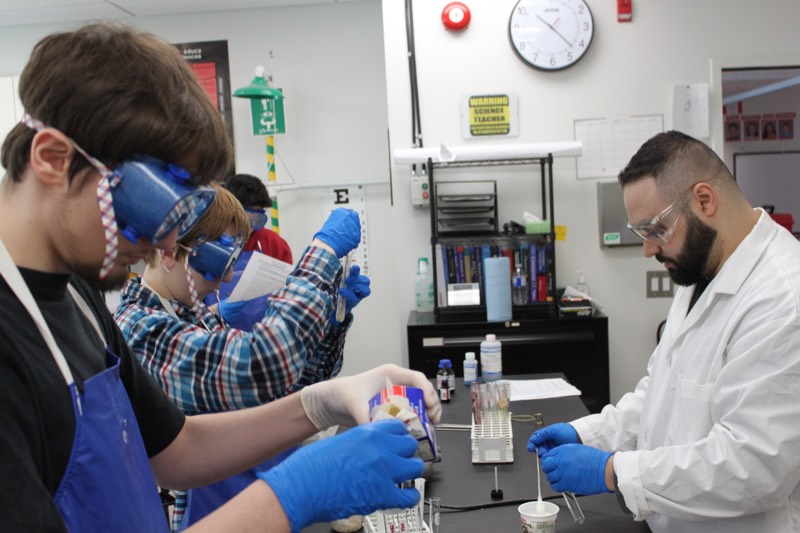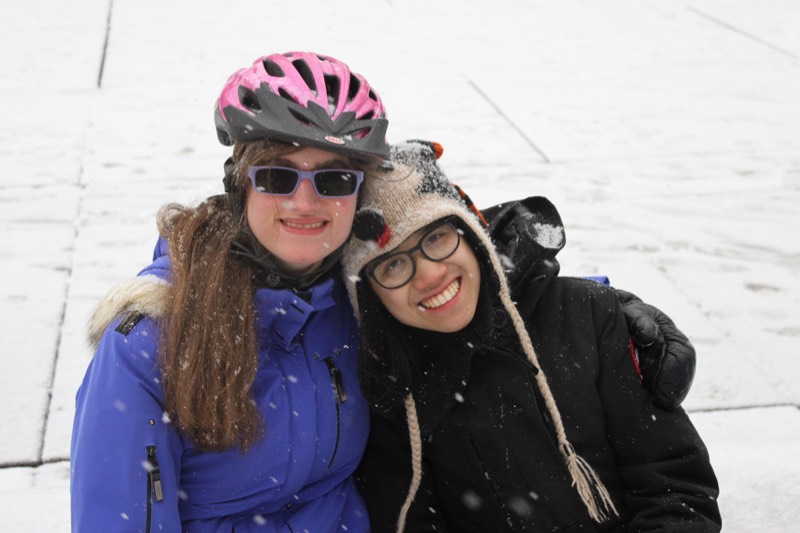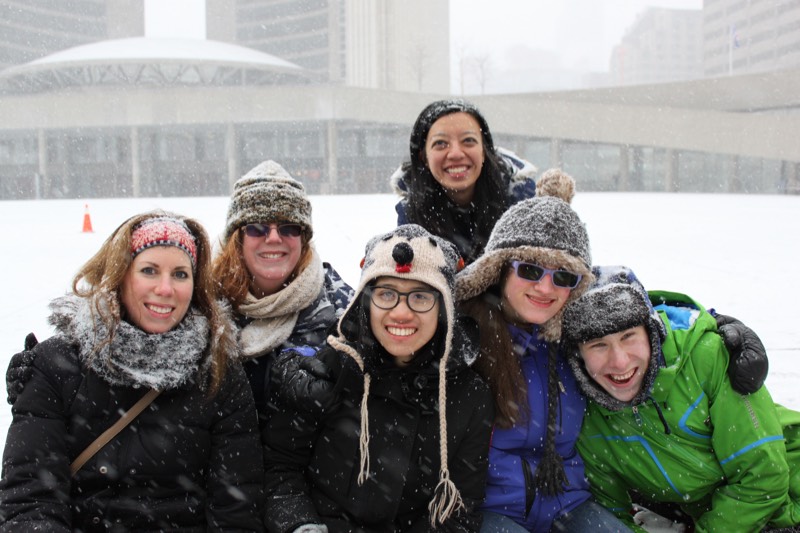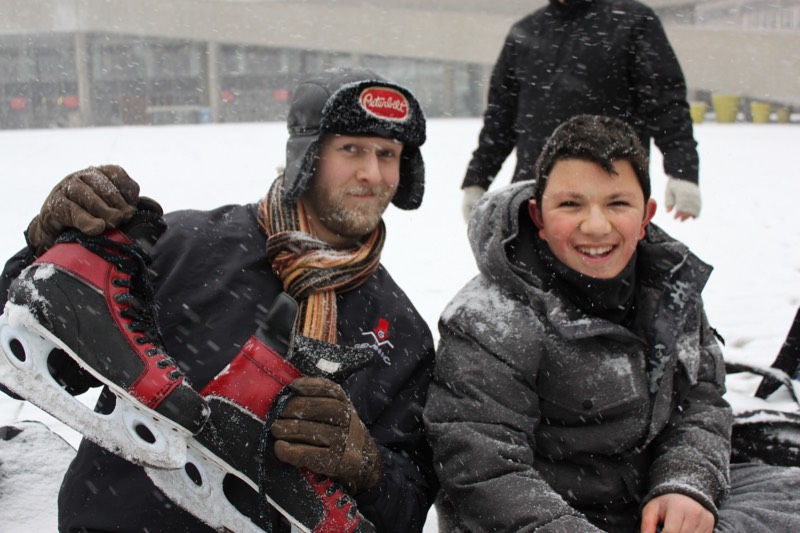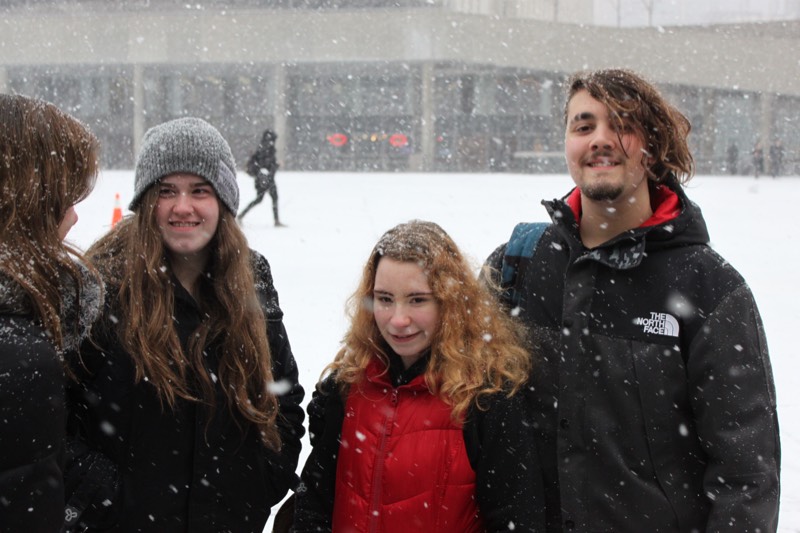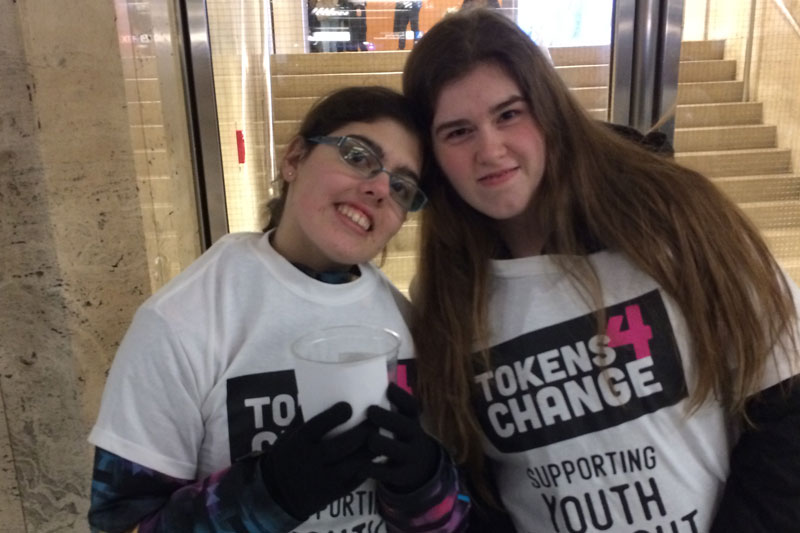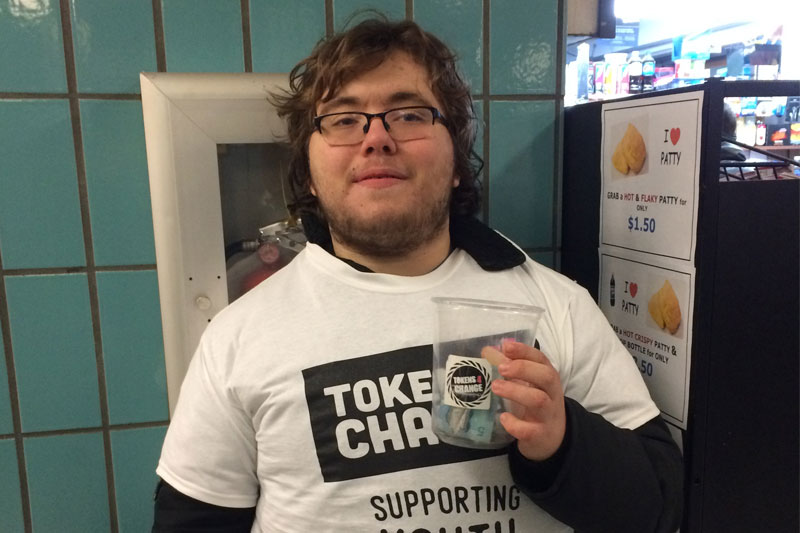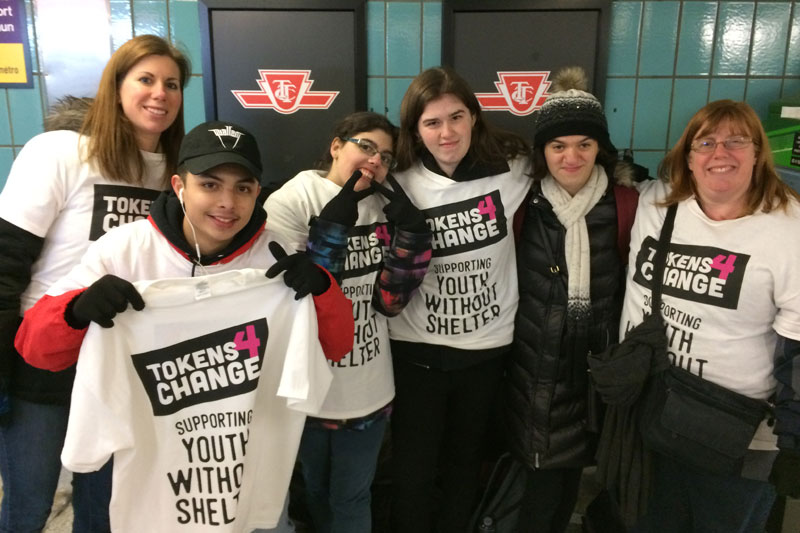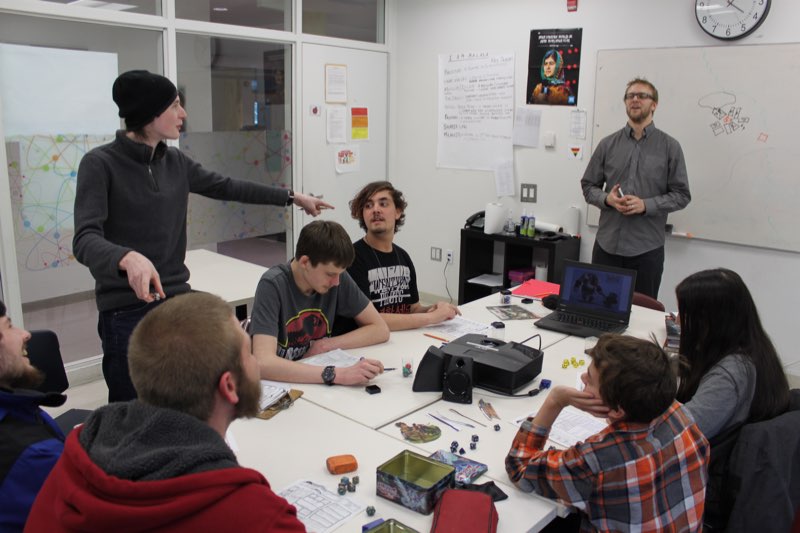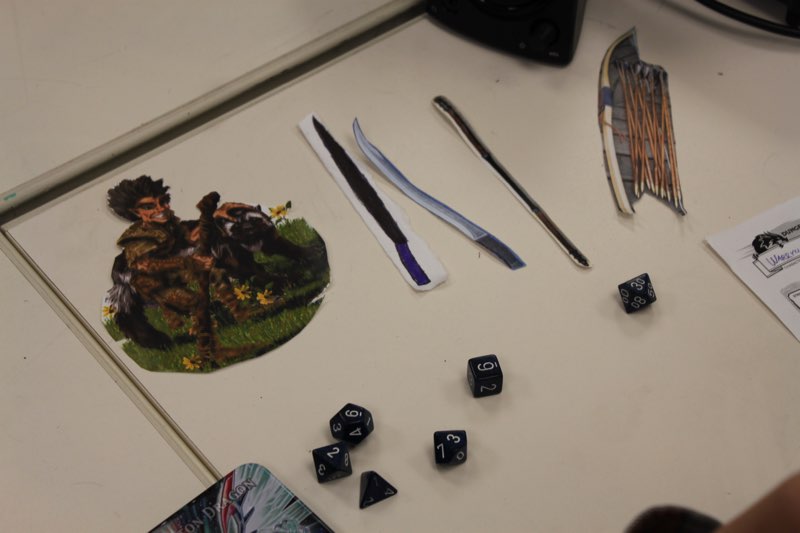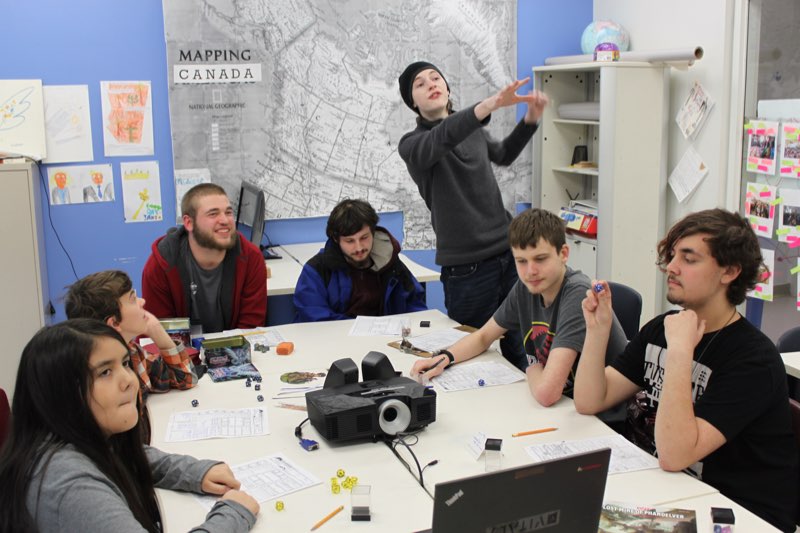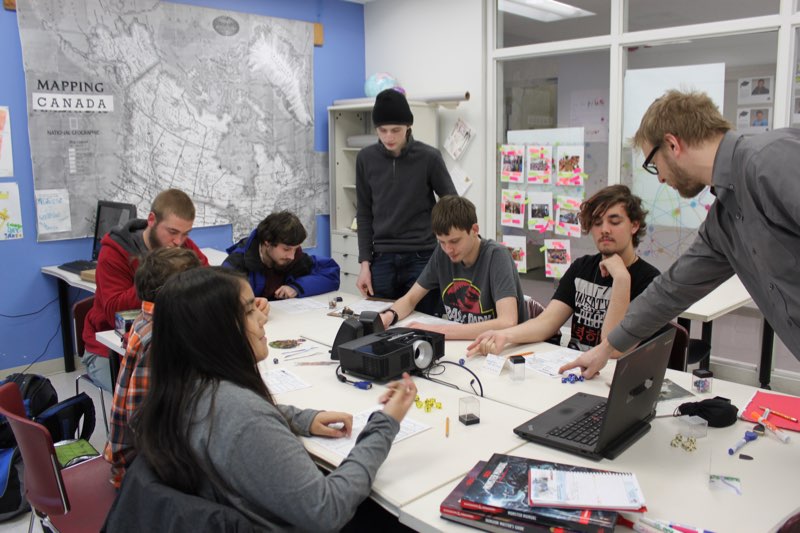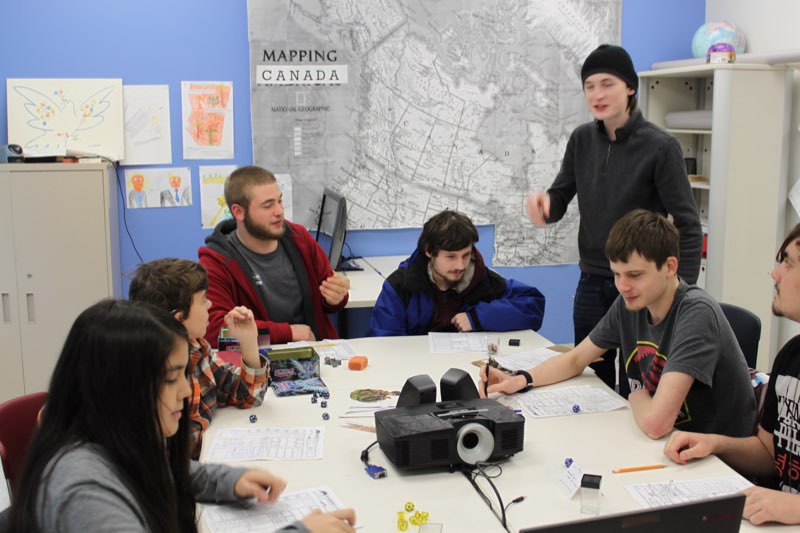Video games may have become the norm for most high school students looking for the thrill of solving puzzles, navigating political intrigue, and combating evil monsters. At my school, however, we sit around a table with pencils, paper and dice. The classic fantasy strategy game, Dungeons and Dragons, has made a major come back at the YMCA Academy. Instead of being powered by a computer or gaming console, Dungeons and Dragons games unfold in the minds of a group of people through shared story telling. Rather than quietly staring a screen and clicking buttons on a controller, the YMCA Academy Dungeons and Dragons Club members cooperatively scour maps, lay out plans, brainstorm solutions, and tackle enemies all through the power of imagination.
This week the companions trekked across dangerous, forested wilderness on their way to gather some key information at an abandoned town a few days’ march to the north. The party is tracking their missing Dwarven employer who was captured by a band of goblins. Their investigation has taken them from a sleepy mining town, through damp caverns, through wild forests and to an abandoned ruin of a village where a dragon has made his lair.
The world of Dungeons and Dragons is only possible through the power of shared story telling. As the Dungeon Master, I set the scene by narrating the opening sequence of a story: I describe the scenery, the time of day, what local people or creatures are nearby, and I explain any activity that is taking place. Players then make decisions based on their character and what is taking place. The outcomes of those decisions are determined by the roll of dice. Then I describe the outcome based on the dice roll, and the cycle starts over again.
I can’t express enough the value of this game. Besides the literacy, numeracy, problem solving, divergent thinking, communication, conflict resolution, and geography skills that are practiced, the social benefits of the game cannot be ignored. Every Monday, a group of students, who range from boisterous to downright shy, join together as a close-knit team to overcome a series of new challenges. Players come out of their shells and take on newfound confidence in leadership roles, they learn to encourage and uplift one another, they learn to listen to one another, they learn to recognize the power of choice, they learn to laugh at mistakes (and bad dice rolls), and they learn celebrate one another’s victories.

